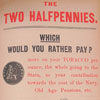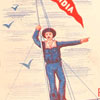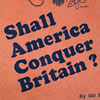Cabinet 13
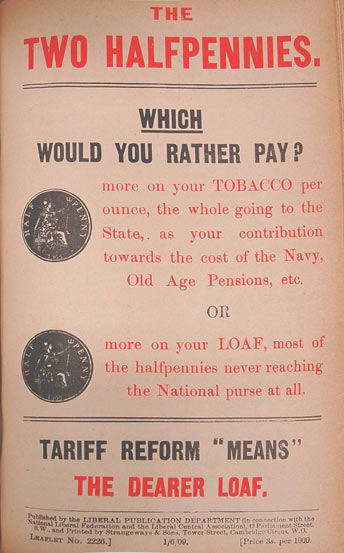
The London-based National Liberal Federation and the Liberal Central Association were certainly busy printing their propaganda wares going by the fact that The Two Halfpennies was numbered leaflet No. 2226. While collectors like McNab might not have made the distinction between pamphlets and leaflets, purists would demand that the leaflet was a distinct and smaller entity - a folded sheet making no more than two or three leaves. Political and social issues in Great Britain were relevant here, and McNab, as a Liberal Party member, no doubt helped disseminate these items, printed, as indicated, in their thousands.
National Liberal Federation, The Two Halfpennies. London: Liberal Publication Department, 1909. Vol. 4. McNab Pamphlets, Heritage Collection, Dunedin Public Library.
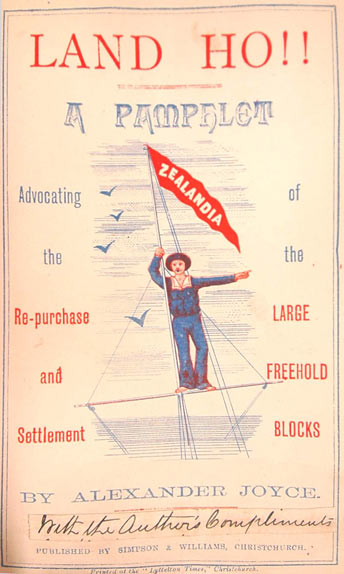
A time ball is a large painted wooden or metal ball that drops (usually from a tower) at a predetermined time, principally to enable sailors to check their marine chronometers from their boats offshore. Alexander Joyce, author of this nautically-flavoured Land Ho!!, was the first timeball keeper at Lyttelton, appointed in May 1877. He was also an advocate of re-incarnation, claiming it was the ‘universal religion of the 20th century’ and held deep concerns about New Zealand’s colonial defence system. Similar copies abound of this pamphlet; the Turnbull Library copy also has ‘with the Author’s Compliments’ pasted on the front cover.
Alexander Joyce, Land Ho!! A Pamphlet. Christchurch: Simpson & Williams, 1889. Z040, Vol. 3. McNab Pamphlets, Heritage Collection, Dunedin Public Library.
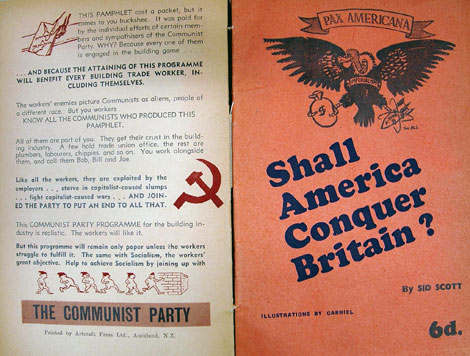
The production of any pamphlet – be it on re-incarnation, political reform, or how to farm ostriches – involves time and money. The author compiles the text, and the printer is charged with undertaking all the pre-production processes as well as printing the final copy. And then there is the distribution – either free or with some nominal charge attached. These two scenarios are evident here. Opposite Sid Scott’s Shall America Conquer Britain? there is the note: ‘This Pamphlet cost a packet, but it comes to you buckshee.’ Scott (1900-1970) was a founding member of the Communist Party of New Zealand. He was a prolific pamphleteer who later became disillusioned with the Party. His ‘Pax Americana’ pamphlet – retailing for sixpence (about 5 cents) – was written in 1947, ten years before he resigned from the Party. He was later expelled.
Sid Scott, Shall America Conquer Britain? [Auckland]: N.Z. Communist Party, 1947. Tautohe NZ. Pamphleteering 1945-1948. Z040 NEW. Heritage Collection, Dunedin Public Library.

